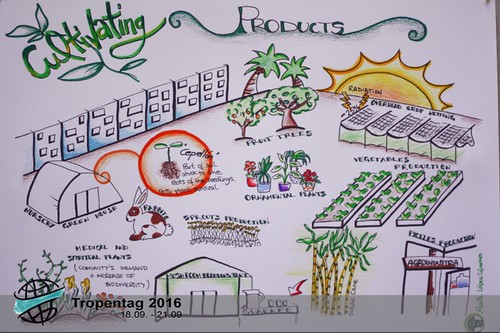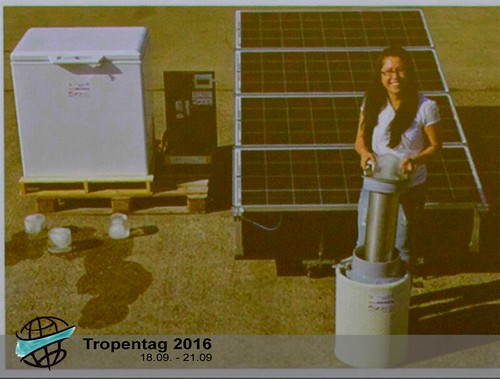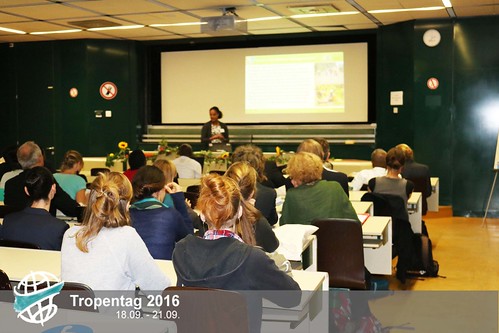Oral presentations 2016
Milk + Sun + Development = cooler, healthier milk? Local, solar-powered milk cooling
Tue, 09/20/2016 - 16:12 — Poscher
How does it work: The solar-powered energy is stored, transferred to a refrigerator and then used to produce ice. The ice then is put into a special designed milk container without having direct contact with the milk. By that, it cools down the milk through additional isolation to around 20 degrees over a long period.
"Being a Woman Farmer is Like Being Cursed"
Tue, 09/20/2016 - 16:01 — ElsbyThe opening oral presentation in the gender section this afternoon, Tuesday 20th, offered a bold statement: “being a woman farmer is like being cursed”. As a woman, and a farmer (albeit in a developed country), this topic especially intrigued me.
The main message from this session was that women in the global south are often inadvertently overburdened by work and life tasks as a result of well-intended gender equality policies. I think this rings true for women worldwide, in different ways.
A commenter from the audience recalled seeing women being given toasters and other small appliances as Mother’s Day and birthday gifts. And while these appliances made domestic life easier, it created more pressure and expectations for women to become gastronomical chefs. It seems that so many well-intended inventions and “advancements” have the unwanted result of making women’s lives more difficult.
Urban agriculture for more resilience in food security
Tue, 09/20/2016 - 15:09 — BergerDo you know the image of Fidel Castro "smoking" a carrot with the caption „organic by default“? This is pretty much the case of Cuban urban farming practices. When the Soviet block collapsed, farmers were forced to turn to sustainable practices due to a lack of external energy-intensive inputs. At the same time, cities had a need for locally produced food. Today, the city of Havana produces 80 percent of its fruit and vegetable demand within the town borders!
The following picture shows a project by Marta Lopéz Cifuentes, student at BOKU, which is displayed in the registration area.

Today, several events at the Tropentag covered the topic of urban agriculture as a means of enhancing food security (and maybe food sovereignty, too). Cuba is a showcase of urban agriculture, since it has relied on it for several decades already. The government has supported urban agriculture in order to become more independent from imports while farmers appreciated their independence from the state. Surprisingly, despite these two contradictory objectives, policies helped urban producers get access to land, markets and extension services, as the research of Friedrich Leitgeb showed.






